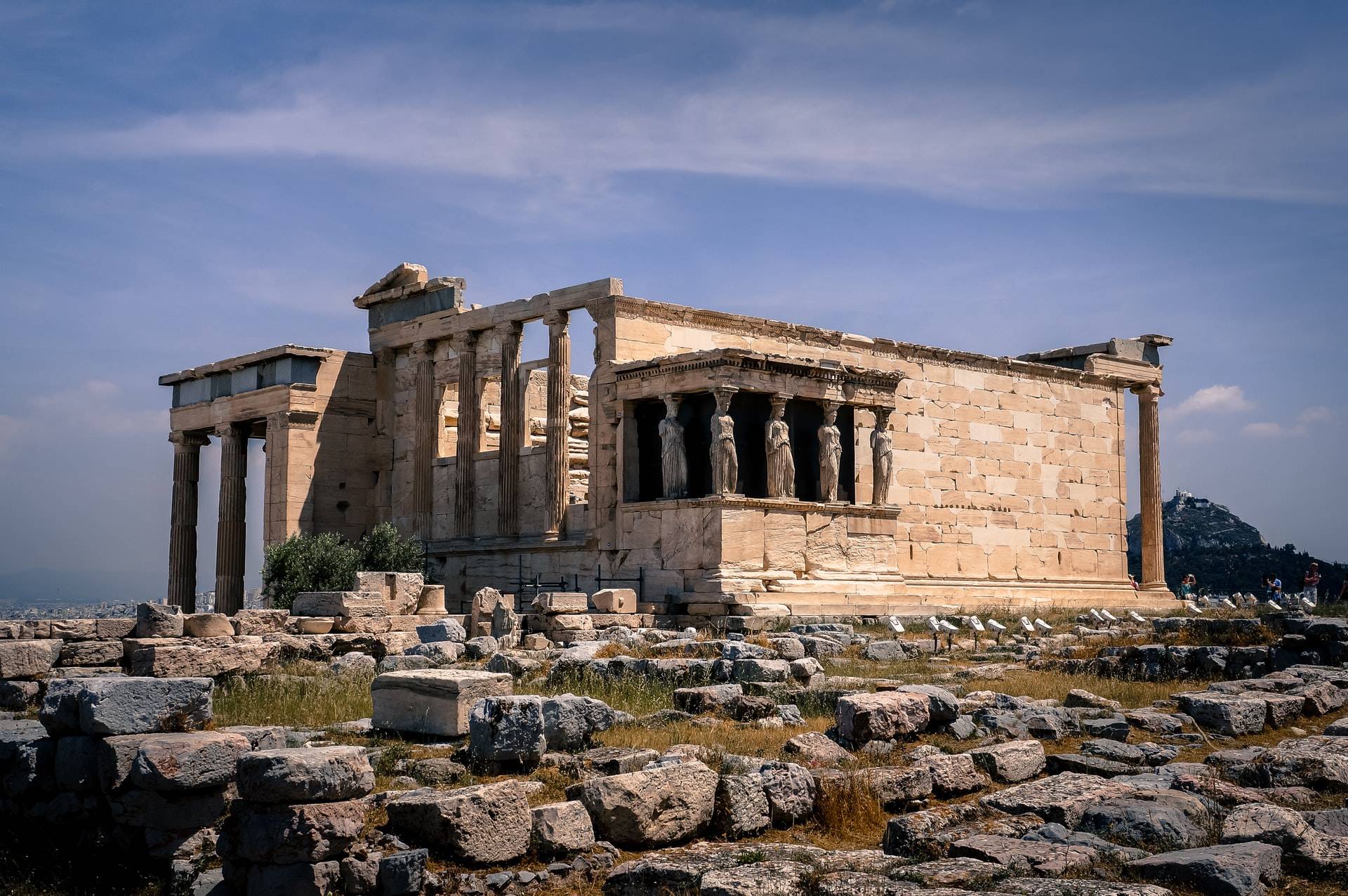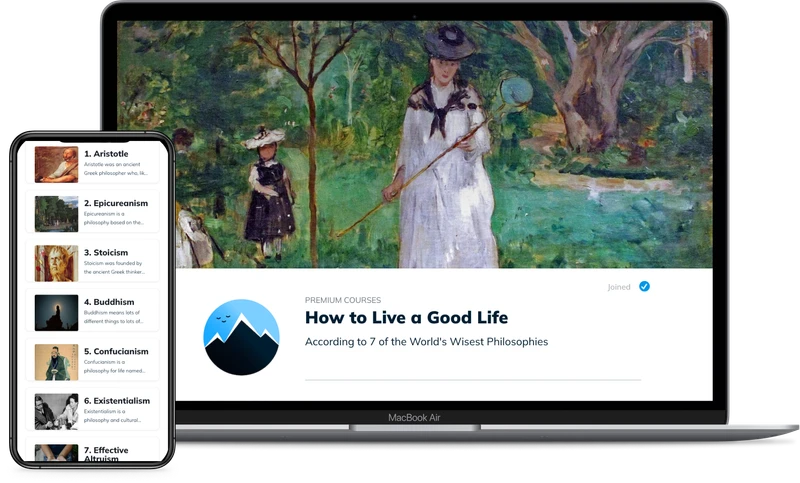
Socratic Method: What Is It and How Can You Use It?
This article defines the Socratic method, a technique for establishing knowledge derived from the approach of ancient Greek philosopher Socrates.

The Socratic method is a form of cooperative dialogue whereby participants make assertions about a particular topic, investigate those assertions with questions designed to uncover presuppositions and stimulate critical thinking, and finally come to mutual agreement and understanding about the topic under discussion (though such mutual agreement is not guaranteed or required).
In more formal educational settings, the Socratic method is harnessed by teachers to ‘draw out’ knowledge from students. The teacher does not directly impart knowledge, but asks probing, thought-provoking questions to kickstart a dialogue between teacher and student, allowing students to formulate and justify answers for themselves.
As Stanford University comment in an issue of their Speaking of Teaching newsletter:
The Socratic method uses questions to examine the values, principles, and beliefs of students. Through questioning, the participants strive first to identify and then to defend their moral intuitions about the world which undergird their ways of life. Socratic inquiry deals not with producing a recitation of facts... but demands rather that the participants account for themselves, their thoughts, actions, and beliefs... Socratic inquiry aims to reveal the motivations and assumptions upon which students lead their lives.
Proponents of the Socratic method argue that, by coming to answers themselves, students better remember both the answer and the logical reasoning that led them there than they would if someone had simply announced a conclusion up front. Furthermore, people are generally more accepting of views they’ve come to based on their own rational workings.

The great philosopher Bertrand Russell once commented, “As usual in philosophy, the first difficulty is to see that the problem is difficult.” Being an inquisitive dialogue, the Socratic method is particularly effective here, revealing hidden subtleties and complexities in subjects that may otherwise appear obvious or simple, such as whether the world around us is ‘real’.
Apply the Socratic method to such a subject, and participants quickly discover how difficult it is to establish a solid answer. This is a good outcome, Russell thinks, for informed skepticism has replaced uninformed conviction — or, as he puts it, “the net result is to substitute articulate hesitation for inarticulate certainty.”
As such, the Socratic method is at its most effective when applied to topics about which people hold deep convictions, such as questions on ethics, value, politics, and how to live.
After just a little probing on the foundations of our convictions on such topics, we learn that what may have appeared simple is in fact a very complicated issue mired in difficulty, uncertainty, and nuance — and that our initial convictions might be less justified than we first thought.

From the Buddha to Nietzsche: join 20,000+ subscribers enjoying my free Sunday Breakdown
In one concise email each Sunday, I break down a famous idea from philosophy. You get the distillation straight to your inbox.
💭 One short philosophical email each Sunday. Unsubscribe any time.
Why is it called the Socratic method?
The Socratic method derives its name from the conversational technique of ancient Greek philosopher Socrates, as presented in his student Plato’s dialogues written between 399 BCE and 347 BCE. The son of a midwife, Socrates draws parallels between his method and midwifery. In Plato’s dialogue Theaetetus, Socrates states:
The only difference [between my trade and that of midwives] is… my concern is not with the body but with the soul that is experiencing birth pangs. And the highest achievement of my art is the power to try by every test to decide whether the offspring of a young person’s thought is a false phantom or is something imbued with life and truth.
Socrates’s approach of sometimes relentless inquiry differed to the teachers in ancient Athens at the time, known as the Sophists, who went for the more conventional ‘sage on a stage’ educational method, trying to persuade people round to their viewpoints on things through impressive presentation and rhetoric.
This distinction in approach made Socrates somewhat of a celebrity of contrarian thought. While the Sophists tried to demonstrate their knowledge, Socrates did his best to demonstrate his (and everybody else’s) ignorance. His guiding principle was that we know nothing — and so, as W. K. C. Guthrie argues in The Greek Philosophers, the Socratic method was for Socrates as much a device for establishing ignorance as it was establishing knowledge.
In one concise email each Sunday, I break down a famous idea from philosophy. You get the distillation straight to your inbox:
💭 One short philosophical email each Sunday. Unsubscribe any time.
Indeed, Plato presents Socrates approaching various influential thinkers from ancient Athenian society and discussing many different subjects with them, including justice, knowledge, beauty, and what it means to live a good life.
Typically the interlocutor in discussion with Socrates begins by making a confident, seemingly self-evident assertion about a particular topic. Socrates then asks them questions about said topic, wrapping them in a tangled web of contradictions and false presuppositions, before concluding that the assertion that began the discussion is hopelessly misguided.
Given this consistent outcome of most if not all of Plato’s dialogues, some have questioned whether Socrates himself actually provides an effective template for the Socratic method as we know it today, in that while the illusion of cooperative dialogue is present, the conversations are largely dominated by Socrates picking apart the views of others.
Was Socrates’s method successful?
The purpose of Socrates’s questioning was usually to jolt people out of their presuppositions and assumptions, and most of Plato’s dialogues end with Socrates kindly declaring the ignorance or even stupidity of those he spoke to. The only knowledge available to us, Socrates assures us, is knowing that we know nothing.
Socrates’s apparent victories in the name of reason and logic, while hugely entertaining and intellectually stimulating for the reader today, led to many important people in ancient Athens getting rather annoyed. Alas, Socrates was sentenced to death for corrupting the minds of the youth — but went on annoying his accusers til the very end with a wondrous exposition on piety and death, as recorded in a collection of Plato’s dialogues, The Trial and Death of Socrates.
Following Socrates’s death, Plato continued to write dialogues featuring Socrates as the protagonist in honor of his great teacher. This has led to lively discussion around how much of the Socrates featured in Plato’s dialogues represents Socrates, and how much he represents Plato. Regardless, Plato’s dialogues — written over 2,000 years ago — are wondrous, and we are lucky to have them.
How can you use the Socratic method today?
Though things ended rather morbidly for Socrates, his method of questioning has evolved and lived on as a brilliant way to draw people out of ignorance, encourage critical thinking, and cooperate in the pursuit of knowledge. Socrates is a martyr not just for philosophy, but for educational dialogue and productive, stimulating exchanges of different perspectives around interesting subjects of all kinds.
Any time you ask questions to get people to think differently about things, any time you participate in healthy, productive debate or problem solving, any time you examine principles and presuppositions and come to an answer for yourself, you channel the same principles Socrates championed all those years ago.

How to Live a Good Life (According to 7 of the World’s Wisest Philosophies)
Explore and compare the wisdom of Stoicism, Existentialism, Buddhism and beyond to forever enrich your personal philosophy.
Get Instant Access★★★★★ (100+ reviews for our courses)
People tend to assent to uncomfortable conclusions more when they’ve done the reasoning and come to the answer themselves. This and a host of other benefits is why the Socratic method is still modelled by many educational institutions today: students are not told ‘what’ to think, but shown ‘how’ to think by being supplied with thoughtful questions rather than straight answers.
So, next time you’re locked in an argument with someone, or looking to inform an audience about a subject you’re experienced in, remember Socrates and the brilliant tradition of respecting different viewpoints, digging out presuppositions, and working together to find an answer.
Further reading
If you’re interested in learning more about Socrates, we’ve compiled a reading list consisting of the best books on his life and philosophy. Hit the banner below to access it now.

Socrates
The Best 5 Books to Read
About the Author

Get one mind-opening philosophical idea distilled to your inbox every Sunday (free)

From the Buddha to Nietzsche: join 20,000+ subscribers enjoying a nugget of profundity from the great philosophers every Sunday:
★★★★★ (100+ reviews for Philosophy Break). Unsubscribe any time.

Take Another Break
Each break takes only a few minutes to read, and is crafted to expand your mind and spark your philosophical curiosity.





